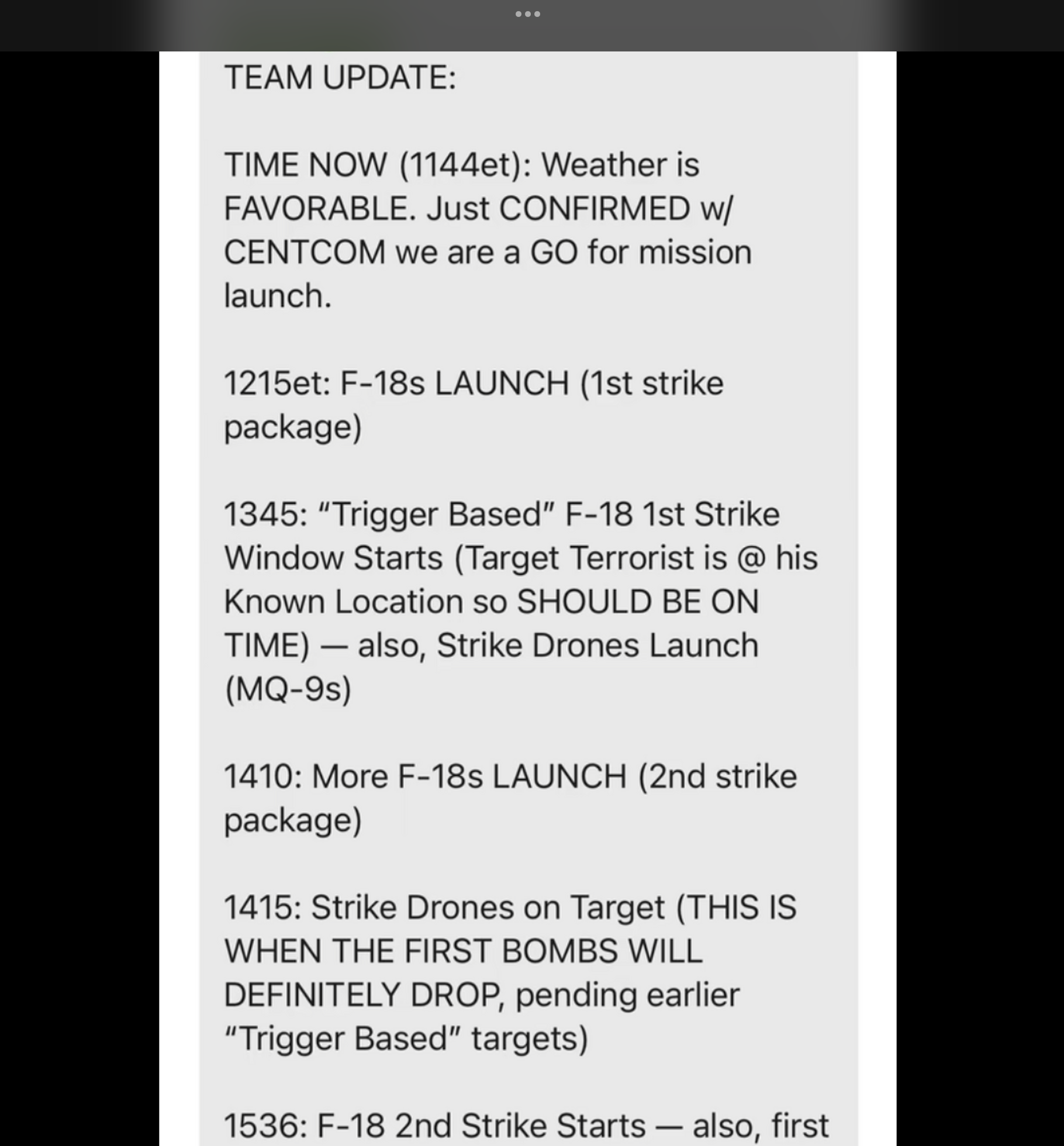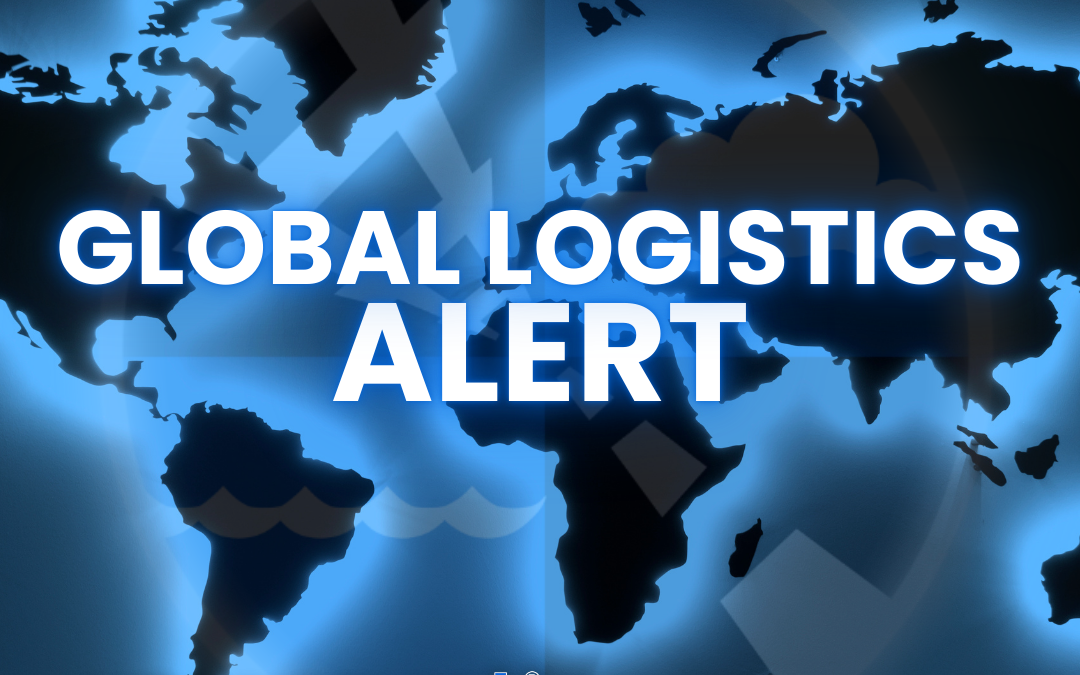
by Ryan Markiewicz | Apr 2, 2025 | News
 Logistics Plus Customs Brokerage Manager Gretchen Blough appeared on the April 1, 2025, edition of NPR’s Marketplace to discuss the latest tariff updates and their impact on importers. With the constant changes and announcements from the White House, Gretchen discusses what her team does to keep customers updated and mitigate these tariffs’ impact on importers.
Logistics Plus Customs Brokerage Manager Gretchen Blough appeared on the April 1, 2025, edition of NPR’s Marketplace to discuss the latest tariff updates and their impact on importers. With the constant changes and announcements from the White House, Gretchen discusses what her team does to keep customers updated and mitigate these tariffs’ impact on importers.
You can listen to the episode online at https://www.marketplace.org/2025/04/01/tariffs-have-left-importers-upset-with-more-yet-to-come/
Marketplace® is a nonprofit news organization on a mission to raise the economic intelligence of the country. For more than 30 years, they have helped people become smarter about the economic forces that touch their daily lives through the unorthodox story, the casual conversation, and the unexpected angle on the news.

by Ryan Markiewicz | Mar 27, 2025 | News
 Troy Pagaduan, Director of Operations for Logistics Plus (LP) Hawaii, was featured on the Business Spotlight program, produced in partnership with WPSE Money Radio. Business Spotlight is a monthly 30-minute program that airs regionally and streams globally.
Troy Pagaduan, Director of Operations for Logistics Plus (LP) Hawaii, was featured on the Business Spotlight program, produced in partnership with WPSE Money Radio. Business Spotlight is a monthly 30-minute program that airs regionally and streams globally.
In this month’s program, Troy provides an update on the company’s Hawaiian-based operations, new warehouse and solutions offered by LP Hawaii, supply chain challenges on the islands, unique projects, and more.
You can listen to a replay of the interview on the Logistics Plus Podcasts page or by clicking below on our LP Radio channel on Spotify.

by Ryan Markiewicz | Mar 26, 2025 | Berlin's Wall
G7 Business Advisory Council
Yesterday was the latest G7 Ukraine Reconstruction Business Advisory Council (BAC) call. As a reminder, this is business and government leaders from the major industrial nations working to help Ukraine clear the path for reconstruction. Working on:
- Insurance so people can have coverage to invest there
- Port infrastructure so goods can get delivered as needed to help the economy
- Energy to help fix what Russia is knocking out and to plan for the future
- Housing to replace and rebuild the tens of thousands of homes that have been destroyed
- Travel, making it easier for people to visit the country and see for themselves what is happening there, as well as the opportunities to rebuild
We have follow-up meetings in Kyiv and Rome coming up. As I’ve mentioned, this is a very impressive and caring group, headed by Dr. Christian Bruch, Chairman of Siemens in Germany (Christian also lived/worked in Buffalo and Erie years ago). All of them are working hard to help Ukraine continue to resist and survive, keep the lights and heat on during the war, and rebuild afterward. A good, solid group.
While everyone is glad there are peace talks in the works, some concerns were expressed about how these might end up. I told them that I had faith that things will go the right way and a “fair” peace will be achieved. That’s clearly the hope everyone has.
Signal Group Chat Leak
You know I try to stay out of politics with Berlin’s Wall (and will), but the recent Signal incident reminds me of something Prof G/Scott Galloway always says: “It’s not the f-up that gets you, it is your response to the f’up.” I agree.
To me, how much easier/smarter would it have been for the folks in this group to say, “Sorry. Our mistake. Lesson learned. Won’t happen again,” and then just STFU?
Trying to deny this was wrong, or to say it was not classified, makes no sense to me. It’s like getting caught by your Mom with your hands and face covered in chocolate and saying, “It wasn’t me who ate that quart of chocolate ice cream.” I don’t get it.

Everyone makes mistakes. Owning them, learning from them, apologizing for them is pretty acceptable for most people (not all–I know). But since everyone is human, and since humans are imperfect, it seems like it would have been a much smarter way to go (and maybe even Jeffrey Goldberg would not then have come up with the actual types of missiles to use and times of launches for the fighter jets that were on that chain? Maybe he still would have, but maybe not).
There is an old saying, “When you find yourself in a hole, the first thing to do is to stop digging.” You think these folks would know that.
Artificial Intelligence (AI)
Lastly, I’ve been playing around with CHAT GPT since it came out last fall. AI is still an “infant” but will soon become a toddler and then a teen and on and on. Learning very fast and you can already tell that the world will change.
I’m not an IT guy (just the opposite, as the LP IT team will rapidly attest 🤪), but I have “played” with IT from the very beginning. I owned a Kaypro back in the ’70s. The first “portable/luggable” computer ever. (64k was its maximum disk capacity). (I know–what’s a disk? Hahahaha). But I had one.
And when I was driving a truck, I was one of the first to use beepers. And then cell phones and Blackberries (I know, what’s a blackberry?). That is why my cell number is 3333. You could actually choose your own number back then. And now AI.
I liken it to driving a car. I can drive really well, but I can’t fix an engine, can’t change spark plugs (I know–what are spark plugs? 🤪) and usually can’t even figure out how to open the hood. But I can drive a car.
Our good friend and former colleague, Moustafa Elhadary, works for OpenAI, which created CHAPGPT. He told me about a new image creator they’ve come out with. He made this to show me.

Pretty cool, huh?
And then told me to make something, so I made this cartoon out of this picture of my grandson, Ernie. Took less than a minute (and even I could do it! 😉). Pretty cool.


Not sure where all of this will end up taking us.
But, as always…
Onward! -JB

by Ryan Markiewicz | Mar 25, 2025 | News
As a global importer or exporter, staying updated with the latest news and developments on tariff actions is essential. Below is a timeline that tracks the most notable recent trade actions by the United States and its major trading partners. The Logistics Plus Customs & Compliance team also offers personalized, 1-on-1 customs and tariff consultations to help importers minimize customs duties and comply with US Customs and Border Protection (CBP) requirements.

 Latest Tariff News (Updated on 4/4/25)
Latest Tariff News (Updated on 4/4/25)

Apr 4, 2025 – China to Impose 34% Retaliatory Tariffs (Read More)
Apr 3, 2025 – White House Announces Liberation Day Tariffs: Full Details (Read More)
Mar 26, 2025 – President Trump announces 25% tariffs on car imports to U.S. (Read More)
Mar 19, 2025 – The US announces a 25% import tariff effective April 2 for any country found importing oil from Venezuela (Read More)
Mar 19, 2025 – Canadian tariffs of 25% on personal goods from the United States (Read More)
Mar 12, 2025 – US tariffs of 25% on imports of steel, aluminum, and derivative products go into effect (Read More)
Mar 12, 2025 – Canada (March 13) and the EU (April 1) retaliate against the US with tariffs on steel, aluminum, and other US goods (Read More)
Mar 7, 2025 – US CBP provides updated guidance on Canada and Mexico tariffs (Read More)
Mar 6, 2025 – The White House grants a one-month tariff exemption for automakers and USMCA commodities (Read More)
Mar 4, 2025 – 25% Canada and Mexico tariffs go into effect (Read More)
Mar 4, 2025 – An Additional 10% tariff (20% total) goes into effect on Chinese imports (Read More)
Mar 1, 2025 – Steel and aluminum import tariffs announced (Read More)
Feb 27, 2025 – President Trump plans another 10% tariff on products from China (Read More)
Feb 25, 2025 – U.S. targets China ships, operators with millions of dollars in new port charges (Read More)
Feb 19, 2025 – Trump to put 25% tariffs on autos, drugs, and chips (Read More)
Feb 10, 2024 – The White House releases a memorandum regarding reciprocal trade and tariffs (Read More)
More updates are available on the Logistics Plus Global Logistics Alert page. Sign up for Global Logistics Alerts to receive the latest news, announcements, and updates regarding global trade.


by Ryan Markiewicz | Mar 12, 2025 | Global Logistics Alerts

Trump’s 25% metals tariffs took effect on Wednesday
President Donald Trump’s increased tariffs on all U.S. steel and aluminum imports took effect on Wednesday, stepping up a campaign to reorder global trade in favor of the U.S. Trump’s action to bulk up protections for American steel and aluminum producers restores effective tariffs of 25% on all imports of the metals. It extends the duties to hundreds of downstream products, from nuts and bolts to bulldozer blades and soda cans.
Read more:
https://www.cbsnews.com/news/trump-tariffs-25-percent-steel-aluminum-eu-retaliation/
Canada and Europe respond with reciprocal tariffs
The European Commission, the executive arm of the European Union charged with coordinating trade matters, responded swiftly, saying it would impose counter tariffs on up to 26 billion euros ($28 billion) worth of U.S. goods.
Canada is hitting back at the United States with additional counter-tariffs worth $29.8 billion in response to new duties on Canadian steel and aluminum. Finance Minister Dominic LeBlanc said Canada’s new 25 per cent reciprocal tariffs will go into effect at 12:01 a.m. eastern on Thursday (3/13/25) and apply to steel products worth $12.6 billion, aluminum products worth $3 billion and additional imported U.S. goods worth $14.2 billion.
Read more:
https://www.reuters.com/markets/commodities/trumps-steel-aluminum-tariffs-take-effect-us-canada-trade-war-intensifies-2025-03-12/
https://globalnews.ca/news/11077973/donald-trump-tariffs-steel-aluminum-mar-12/


 Logistics Plus Customs Brokerage Manager Gretchen Blough appeared on the April 1, 2025, edition of NPR’s Marketplace to discuss the latest tariff updates and their impact on importers. With the constant changes and announcements from the White House, Gretchen discusses what her team does to keep customers updated and mitigate these tariffs’ impact on importers.
Logistics Plus Customs Brokerage Manager Gretchen Blough appeared on the April 1, 2025, edition of NPR’s Marketplace to discuss the latest tariff updates and their impact on importers. With the constant changes and announcements from the White House, Gretchen discusses what her team does to keep customers updated and mitigate these tariffs’ impact on importers.








 Latest Tariff News (Updated on 4/4/25)
Latest Tariff News (Updated on 4/4/25)


